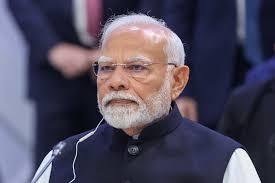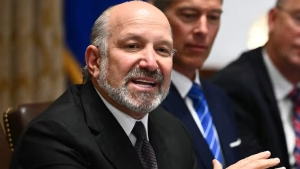New Delhi – Prime Minister Narendra Modi‘s decision to Modi skip BRICS summit has generated significant attention just one week after widely circulated images showed him alongside Russian President Vladimir Putin and Chinese President Xi Jinping at the Shanghai Cooperation Organisation gathering. The timing of this absence from the September 8 virtual conference on multilateralism appears strategically calculated amid mounting international pressures.
External Affairs Ministry spokesperson Randhir Jaiswal confirmed that External Affairs Minister will represent India instead of the Prime Minister. “This virtual meeting will happen on September 8. From our side, it will be the external affairs minister who will be participating in it. This big summit is at the leaders’ level,” Jaiswal announced during the weekly briefing.
The choice for Modi skip BRICS summit comes at a particularly sensitive time when the grouping plans to deliberate on US President Donald Trump’s comprehensive tariff measures affecting member nations.
Balancing Act Amid International Pressures

Sources indicate that the decision for Modi skip BRICS summit represents part of New Delhi’s careful balancing act, especially following the reception to his participation in the SCO summit. The images of Modi standing and laughing alongside Xi and Putin were interpreted globally as signs of India’s deepening engagement with China and Russia amid escalating tensions with the Trump administration.
The strategic choice for Modi skip BRICS summit reflects India’s complex diplomatic positioning as it navigates relationships with major powers while managing economic pressures. This calculated absence demonstrates New Delhi’s awareness of the optics surrounding high-level multilateral engagements during periods of heightened geopolitical tension.
The timing of the decision for Modi skip BRICS summit also coincides with the Trump administration’s implementation of severe economic measures against India, including 50% tariffs on Indian imports.
Trump’s Escalating Tariff Campaign


The backdrop for the decision to Modi skip BRICS summit includes Trump’s aggressive tariff policy targeting multiple BRICS members. The US has imposed 50% tariffs on Indian imports, with half implemented as reciprocal tariffs and the remainder as penalties for purchasing Russian oil.
India has characterized the additional 25% tariff specifically targeting oil imports as “unjustified,” arguing that New Delhi has been unfairly singled out while China, the US, and Europe continue maintaining trade relationships with Moscow. This economic pressure provides crucial context for understanding why Modi skip BRICS summit at this particular moment.
Brazil has also faced similar tariff pressures, with Trump implementing 50% tariffs while exempting certain goods such as airplanes and orange juice, creating different tariff regimes across BRICS members.
Brazil’s Summit Initiative on Multilateralism
Brazilian President Luiz Inacio Lula da Silva has convened the BRICS virtual summit specifically to address Trump’s tariff policies and broader multilateral concerns. Brazilian officials emphasize that Lula wants discussions to extend beyond tariffs toward building consensus among major emerging economies supporting multilateralism.
However, Brazilian authorities stress they do not want the meeting to become explicitly anti-American, creating additional complexity around the decision for Modi skip BRICS summit. The choice reflects India’s desire to avoid appearing to join an overtly confrontational stance against Washington.
Differences in tariff regimes imposed on various BRICS members have complicated efforts to coordinate joint responses, with Brazilian officials noting that Modi’s perceived closeness to Trump was viewed within BRICS as a potential obstacle to taking stronger positions against American trade policies.
Trump’s Direct Response to SCO Participation


The Trump administration’s reaction to Modi’s SCO summit participation was immediate and pointed. Trump posted on social media that “India buys most of its oil and military products from Russia, very little from the U.S.,” reinforcing his longstanding complaints about the Indo-US trade deficit.
Trump escalated his criticism further, declaring that America had “lost India and Russia to deepest, darkest China” and sarcastically wishing them a “long and prosperous future together.” These statements provide direct context for the strategic decision to Modi skip BRICS summit.
Commerce Secretary’s Targeted Criticism

US Commerce Secretary Howard Lutnick reinforced Trump’s message with targeted criticism of BRICS itself. “India doesn’t yet want to open their market, stop buying Russian oil, right, and stop being a part of BRICS, right, they’re the vowel between Russia and China,” Lutnick stated, directly challenging India’s participation in the grouping.
Trump has repeatedly targeted BRICS in his rhetoric, warning in July that any country aligning with the bloc’s “anti-American policies” would face additional 10% tariffs. He dismissed BRICS as a “little group” undermining the dollar, threatening further penalties for local currency trading initiatives.
India’s Consistent Policy Positions
Despite pressures, India has maintained consistent positions on key issues. The External Affairs Ministry has repeatedly clarified that “de-dollarisation is not part of India’s financial agenda,” while acknowledging that BRICS members have explored local-currency cross-border trade options.
The decision to Modi skip BRICS summit ultimately reflects India’s sophisticated diplomatic approach, balancing multiple relationships while protecting national interests in an increasingly complex international environment.

